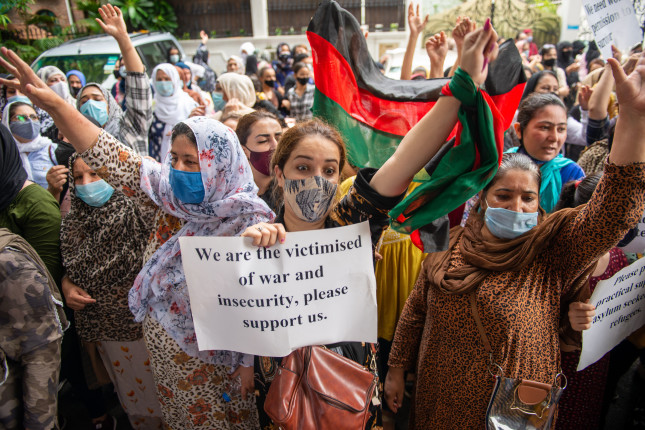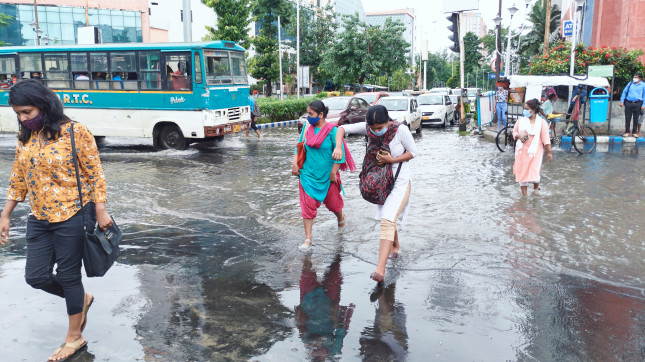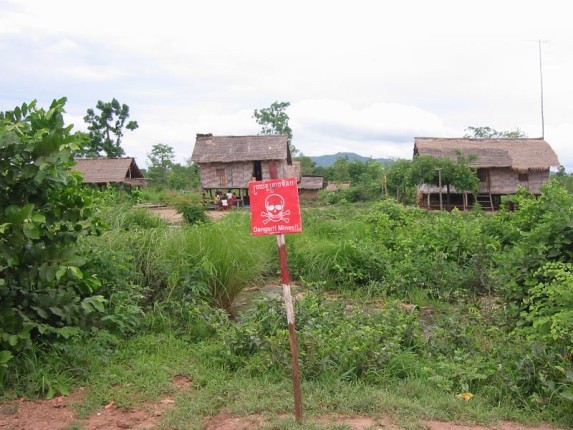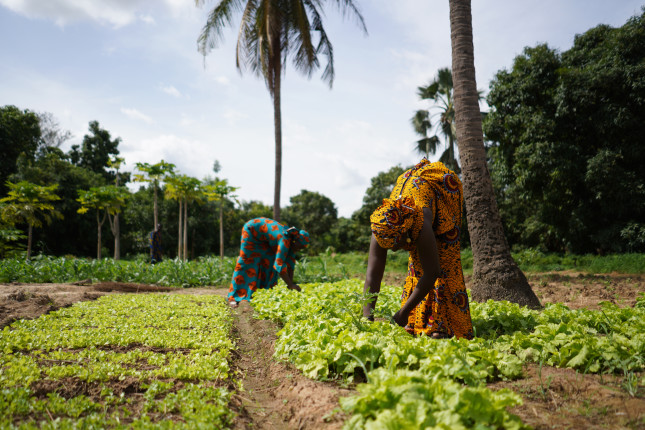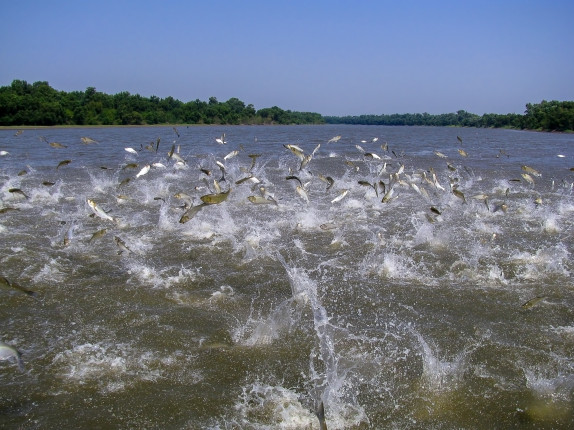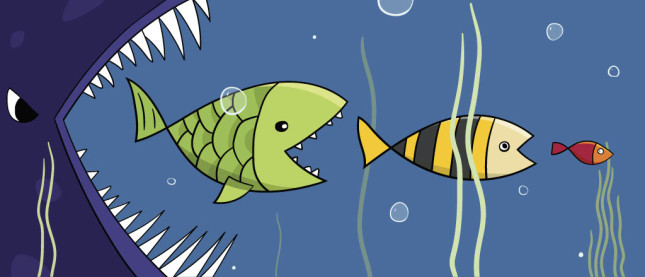-
Integrating Conflict Prevention and Climate Change in U.S. Foreign Policy and Development Assistance
›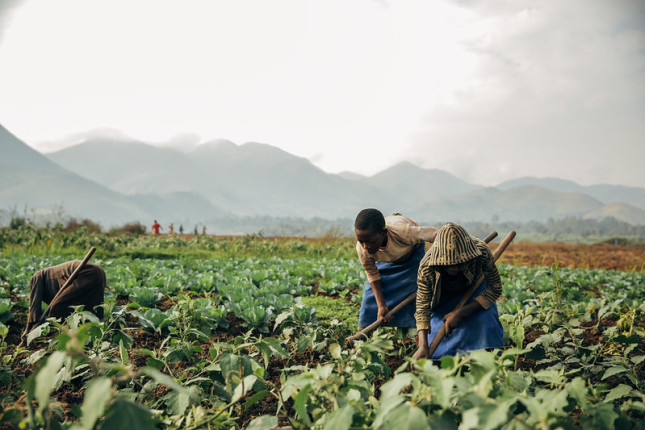
Climate change is no longer an abstract issue we may face in the future. Devastating forest fires, the hottest June on record in the United States, lethal flooding in Europe and Asia, and extreme droughts in Africa reveal that the climate is already changing with extreme consequences. Even more concerning than these events alone is the reality that the drivers of climate change, violent conflict, and fragile states compound each other. Climate change exacerbates unstable social, economic, and political conditions, while conflict and fragility can hinder effective climate change response and adaptation. The U.S. can address the compound risks created by both of these issues only through integration of conflict prevention and climate change in its foreign policy and development assistance.
-
Afghans that Remain Are in Dire Need of Humanitarian Support
›
Although large-scale evacuation efforts have dominated international attention, evacuation is only an option for a “tiny fraction” of the Afghan population, said Vicki Aken, Country Director for Afghanistan at the International Rescue Committee, at a congressional briefing hosted by the Tom Lantos Human Rights Commission. The briefing was focused on the evolving humanitarian situation in Afghanistan and the need for civil protection in the country. “More than 40 million Afghans will remain in Afghanistan,” said Aken. “And half of them already face critical humanitarian needs.”
-
COVID-19 and the Fight Against Climate Change: What Have We Learned?
›
As the world continues to battle the COVID crisis, we must not lose sight of the greatest long-term threat faced by mankind: climate change.
COVID-19 and its even more contagious variants have wrought misery upon our world, inflicting massive loss of life and sickness, widespread disruption of health services, and economic ruin with ensuing social upheaval. There is no silver lining.
We can, however, attempt to extract useful lessons from the strategies and tactics──both successful and unsuccessful──used to battle the contagion to better array our forces against that other pending global catastrophe: climate change.
-
Peaceful Minefields: Environmental Protection or Security Risks?
›
On my first tour of a Cambodian minefield in 2010, the demining supervisor of the platoon of deminers brought me through a tapioca field where heavily armored men and women stood in lines. I was not allowed beyond the bright red signs with skulls and crossbones. Wearing bulletproof helmets, masks, and aprons, they slowly and tediously walked through the field, using a metal detector to sweep the ground in front of them, the sun reflecting off the long plastic visor. To avoid the heat of the Cambodian sun, they began their work early in the morning. In the golden hour of sunrise as dawn gilded the fields, the sounds of a distant Buddhist temple surrounded us with chanting. I commented on how beautiful it was.
-
Why Addressing the Climate Crisis Can Help Build More Sustainable Peace
›
Thirty years of research underlies the realization that climate change poses substantial national, international and human security risks, but analysts have only recently shifted their focus toward how to simultaneously build peace in post-conflict environments and grapple with the dual challenges of mitigating and adapting to climate change. In a recent article in World Development article, we propose what causal pathways can simultaneously facilitate climate change adaptation, increase resilience, improve natural resource governance, and build more sustainable peace.
-
China and U.S. Aquaculture Open Doors to Invaders
›“Gui Jie” in Beijing, meaning Ghost Street, is dedicated to crayfish and is filled with towering bright red crayfish statues. While it might just seem like a show for tourists, the Chinese are responsible for 90 percent of the world’s crayfish consumption and crayfish is on menus throughout the country. Between 2006 and 2016, crayfish production more than tripled to 850,000 tons. Surprisingly, crayfish is not native to China but the Chinese began raising them when aquaculture began expanding in the 1980s.
-
What Next for U.S. Engagement on Cambodia’s Protected Forests?
›
Cambodia’s lush Prey Lang rainforest is abundant with animals, insects and birds, including endangered species, and diverse types of forests. It also provides resin tapping and other sources of livelihood for some 250,000 people, many of whom are Indigenous Kuy, living within or adjacent to the forest.
-
The Top 5 Posts of July 2021
›
Feeding all the fish grown in aquaculture remains a challenge in China, the U.S. and elsewhere. Aquaculture currently uses 75 percent of global fish oil supplies and researchers estimate that the demand for forage fish will exceed the ocean’s supply by 2037. In this month’s top post, Karen Mancl discusses the need for policy interventions to halt the overharvesting of oceans for fish feed and to ramp up the use of alternative fish feeds such as insects and algae.
 A Publication of the Stimson Center.
A Publication of the Stimson Center.

